Remember These Faces (1944)

Si vous aimez ce film, faites-le savoir !
Remember These Faces is a 1945 short film produced by the United States Navy, Marines, and Coast Guard. It encourages people to contribute to the 7th War Bond drive by following the typical American serviceman from his landing on an unnamed Pacific island, combat, his being wounded in action, and arrival at a military hospital.
The film focuses on the faces of the servicemen as they are about to head into battle, as well as when they are wounded, with the narrator reminding the audience that these were the people they were helping by supporting the war effort.
Commentaires
Postez un commentaire :
Suggestions de films similaires à Remember These Faces
Il y a 8197 films qui ont les mêmes thèmes (dont 442 films qui ont les mêmes 4 thèmes que Remember These Faces), pour avoir au final 70 suggestions de films similaires.Si vous avez aimé Remember These Faces, vous aimerez sûrement les films similaires suivants :
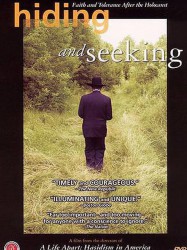
Hiding and Seeking (2004)
Genres Documentaire
Thèmes Le racisme, Religion, Documentaire sur la discrimination, Documentaire sur le droit, Documentaire sur la guerre, Documentaire historique, Documentaire sur une personnalité, Documentaire sur la religion, Politique, Religion juive, Documentaire sur la Seconde Guerre mondiale
Note77%





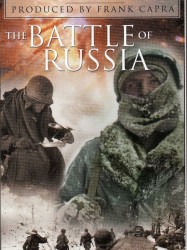 , 1h23
, 1h23Réalisé par Frank Capra, Anatole Litvak
Origine Etats-Unis
Genres Guerre, Documentaire, Historique
Thèmes Documentaire sur la guerre, Documentaire historique, Politique, Documentaire sur la Seconde Guerre mondiale
Acteurs Walter Huston, Anthony Veiller, Nikolai Cherkasov
Note70%





Ce film de propagande américain souligne le besoin d'une alliance russo-américaine contre les nazis.
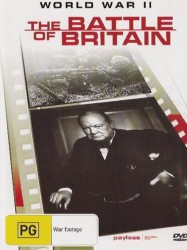
La bataille d’Angleterre (1943)
, 54minutesRéalisé par Frank Capra, Anatole Litvak, Anthony Veiller
Origine Etats-Unis
Genres Guerre, Documentaire, Historique
Thèmes Transport, Aviation, Documentaire sur la guerre, Documentaire historique, Documentaire sur les technologies, Politique, Documentaire sur la Seconde Guerre mondiale
Acteurs Anthony Veiller, Frieda Inescort, Walter Huston
Note70%





Après avoir conquis la France, l’Angleterre est le dernier obstacle qui sépare Hitler de la domination du monde. À plus de 8 000 mètres au-dessus de la Manche, les chasseurs de la Royal Air Force vont livrer une bataille sans concession pour stopper les bombardiers de la Luftwaffe.

Baptism of Fire (1943)
Origine Etats-Unis
Genres Documentaire
Thèmes Documentaire sur la guerre, Documentaire historique, Politique, Documentaire sur la Seconde Guerre mondiale
Acteurs Elisha Cook, Jr., Walter Sande, Peter Whitney
Note57%






Banshees Over Canada (1943)
, 19minutesOrigine Canada
Genres Documentaire
Thèmes Transport, Aviation, Documentaire sur la guerre, Documentaire historique, Documentaire sur les technologies, Politique, Documentaire sur la Seconde Guerre mondiale
British preparations for a German bombing raid are examined, as well as the resultant destruction caused by the raid and the defences mounted by Britain's Royal Air Force. Canadian preparations for air defence, should the country be attacked during the then-current Second World War is also highlighted.
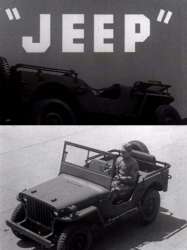 , 9minutes
, 9minutesRéalisé par Irving Lerner
Origine Etats-Unis
Genres Documentaire, Historique
Thèmes Documentaire sur la guerre, Documentaire historique, Politique, Documentaire sur la Seconde Guerre mondiale
Note61%






Atomic Mom (2010)
, 1h27Origine Etats-Unis
Thèmes L'environnement, La mer, Transport, Aviation, Documentaire sur l'environnement, Documentaire sur la guerre, Documentaire historique, Documentaire sur le nucléaire, Documentaire sur les technologies, Politique, Documentaire sur la Seconde Guerre mondiale
Note63%





Atomic Mom is a documentary film written and directed by M.T Silvia, which focuses on the connection between two mothers that are each on a different end of the Hiroshima atomic warfare spectrum: Pauline Silvia, a United States Navy biologist, and one of the only female scientists present during the 1953 radiation detonations of Operation Upshot-Knothole at the then-Nevada Test Site, and Emiko Okada, a Japanese woman who was exposed to radiation from the Hiroshima nuclear bombings as a child. Atomic Mom also offers a comparison of the Hiroshima Peace Memorial Museum and the Atomic Testing Museum in Las Vegas, Nevada.
[...]Voir plus...
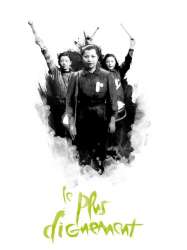
Le plus dignement (1944)
, 1h25Réalisé par Akira Kurosawa
Origine Japon
Genres Drame, Guerre
Thèmes Politique, Le monde du travail, Documentaire sur la guerre, Documentaire historique, Politique, Documentaire sur la Seconde Guerre mondiale
Acteurs Yōko Yaguchi, Takashi Shimura, Ichirō Sugai (菅井一郎), Takako Irie, Michiko Oikawa, Akitake Kōno
Note56%





Le film décrit les efforts de productivité dans une usine de pièces optiques à destination de l'armée japonaise, lors de la Seconde Guerre mondiale ; on suit en particulier un groupe d'ouvrières japonaises solidaires entre elles pour atteindre leur objectif.
 , 1h32
, 1h32Origine Etats-Unis
Genres Documentaire, Historique
Thèmes Film traitant du cinéma, Le racisme, Religion, Documentaire sur le monde des affaires, Documentaire sur le cinéma, Documentaire sur la discrimination, Documentaire sur le droit, Documentaire sur la guerre, Documentaire historique, Documentaire sur une personnalité, Documentaire sur la religion, Politique, Religion juive, Documentaire sur la Seconde Guerre mondiale, Documentaire sur les films
Acteurs Gene Hackman, Robert Clary, Dan Curtis, Ralph Edwards, Ralph Fiennes, Ben Kingsley
Note74%






Titanic (1943)
, 1h25Réalisé par Herbert Selpin, Werner Klingler
Origine Allemagne
Genres Drame, Action, Historique
Thèmes La fin du monde, La mer, Politique, Transport, Le Titanic, Documentaire sur la guerre, Documentaire historique, Politique, Documentaire sur la Seconde Guerre mondiale, Film catastrophe, Catastrophe navale
Acteurs Sybille Schmitz, Hans Nielsen, Kirsten Heiberg, Otto Wernicke, Franz Schafheitlin, Ernst Fritz Fürbringer
Note60%





La White Star Line, compagnie maritime britannique, connaît de graves soucis financiers à cause de la construction de son dernier navire, le Titanic. Pour garantir des profits conséquents, son président, Bruce Ismay, décide de lancer le navire à toute vitesse dans l'Atlantique Nord pour lui faire remporter le Ruban bleu au mépris de la sécurité des passagers. Il fait donc pression sur le capitaine pour l'inciter à augmenter la vitesse du paquebot. Seul le premier officier Petersen, un Allemand, critique ouvertement cette idée.
 Connexion
Connexion
